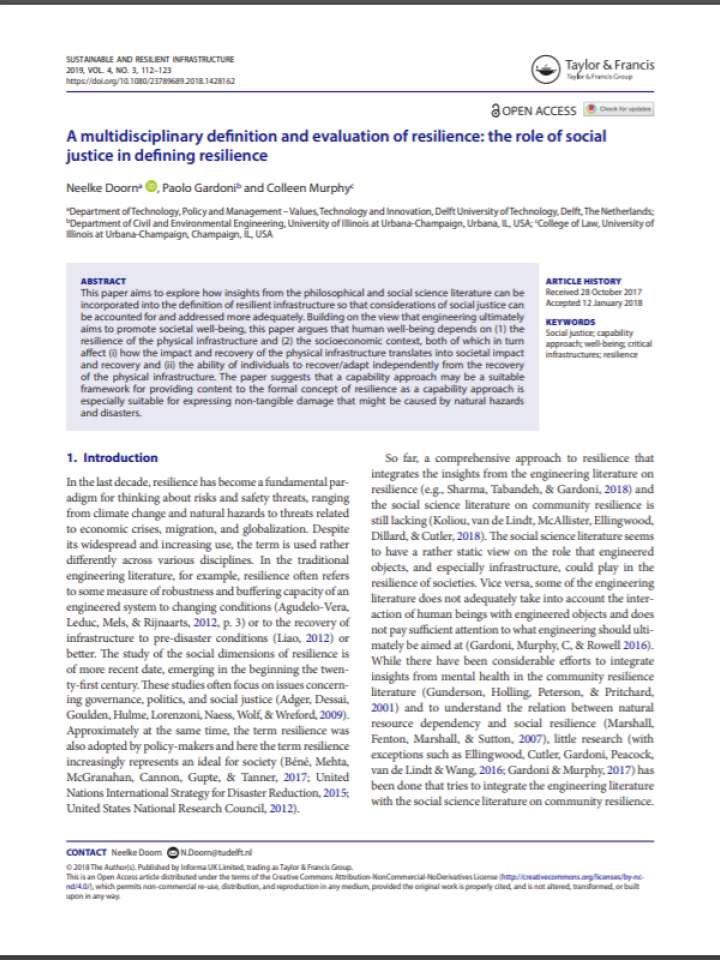A multidisciplinary definition and evaluation of resilience: the role of social justice in defining resilience
This paper aims to explore how insights from the philosophical and social science literature can be incorporated into the definition of resilient infrastructure so that considerations of social justice can be accounted for and addressed more adequately. In the last decade, resilience has become a fundamental paradigm for thinking about risks and safety threats, ranging from climate change and natural hazards to threats related to economic crises, migration, and globalization. Despite its widespread and increasing use, the term is used rather differently across various disciplines.
Building on the view that engineering ultimately aims to promote societal well-being, this paper argues that human well-being depends on the resilience of the physical infrastructure and the socioeconomic context. Both of these in turn affect how the impact and recovery of the physical infrastructure translates into societal impact and recovery and the ability of individuals to recover/adapt independently from the recovery of the physical infrastructure.
This paper concludes by suggesting that a capability approach may be a suitable framework for providing content to the formal concept of resilience as a capability approach is especially suitable for expressing non-tangible damage that might be caused by natural hazards and disasters.
Explore further
